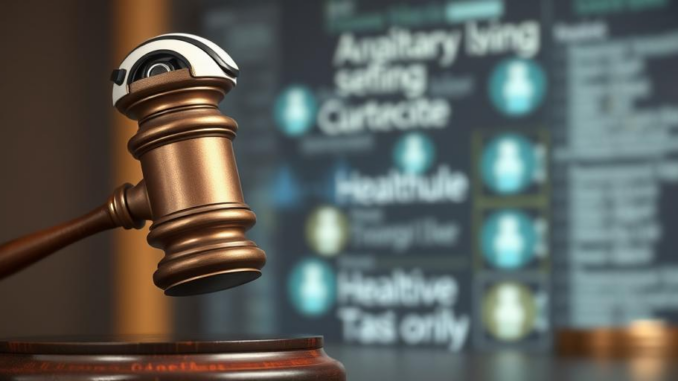
Summary
A class-action lawsuit against UnitedHealth Group over the alleged use of AI to deny claims continues, focusing on breach of contract and good faith. A federal judge dismissed five of seven claims but allowed two to proceed, alleging that UnitedHealth’s AI tool, nH Predict, improperly denied medically necessary care, leading to patient harm and financial strain. The lawsuit questions UnitedHealth’s claim that medical professionals make coverage decisions, not AI.
Start with a free consultation to discover how TrueNAS can transform your healthcare data management.
** Main Story**
The AI in Healthcare Debate: A Lawsuit Against UnitedHealth Sounds an Alarm
The buzz around AI in healthcare is undeniable. It promises incredible things, from faster diagnoses to more personalized treatments. But, there’s a looming question we can’t ignore: Are we truly ready to hand over critical decisions to algorithms? A recent lawsuit against UnitedHealth Group (UHG) throws this question into sharp relief.
While a federal judge dismissed some initial claims, the suit will proceed on two key counts: breach of contract and breach of the implied covenant of good faith. Essentially, the core argument is that UHG allegedly used AI to deny claims, potentially harming patients in the process. And, the outcome of this case could set a significant precedent.
What’s the Fuss About? AI-Driven Denials Under Scrutiny
The lawsuit, filed in November 2023, makes some pretty serious allegations. It claims that UHG, UnitedHealthcare, and naviHealth were routinely denying claims using an AI program instead of relying on qualified medical professionals. Can you imagine being denied crucial care because an algorithm said so? The plaintiffs argue that this AI program, called nH Predict, essentially overrode the judgment of doctors, and with a high error rate, with 9 out of 10 appealed denials being overturned.
That’s not just a glitch; that’s a potential systemic problem. Think about the impact on elderly patients in Medicare Advantage plans. The suit claims the AI-driven denials led to patients being denied medically necessary post-acute care, leading to deteriorating health and, in some cases, tragic outcomes. The plaintiffs even allege that staff felt pressured to follow the AI’s recommendations, even when they knew further care was needed. It’s a pretty worrying scenario.
The argument boils down to this: UHG promised to cover medically necessary services and to have clinical staff make decisions, right? The plaintiffs contend that by relying on AI, they broke that promise, and, moreover, benefitted financially by dodging the costs of care they were obligated to provide. Ouch.
The Judge’s Ruling: A Focus on Broken Promises?
So, while the judge dismissed some of the claims due to federal Medicare law, the breach of contract and good faith arguments are still very much on the table. This means the court will examine whether UHG truly adhered to its contractual obligations. Did they really ensure that medical professionals, not AI, were making coverage decisions? Did UHG actually follow its own procedures, which emphasize the role of clinical staff and physicians? These are the questions that will be under the microscope.
The Bigger Picture: AI in Healthcare – Proceed With Caution
Look, I’m all for progress, and AI definitely holds a ton of potential in healthcare. I’ve seen firsthand how it can speed up research and improve diagnostics. A friend of mine, a radiologist, uses AI to help identify subtle anomalies in scans, which can be a real game-changer. However, this lawsuit highlights the need for caution, especially in areas as sensitive as coverage decisions.
Specifically, we need to focus on:
- Transparency and Explainability: We can’t just blindly trust algorithms. We need to understand how they’re making decisions, otherwise, how can we ensure fairness and accountability? Patients and doctors deserve to know.
- Human Oversight and Control: AI should be a tool to support, not replace, human judgment. The final say should always rest with qualified medical professionals.
- Robust Validation and Testing: Before deploying AI in real-world scenarios, we need rigorous testing to ensure accuracy and reliability. A 90% overturn rate on appeals, as alleged in this case, is a glaring red flag.
For AI to truly revolutionize healthcare, we need appropriate regulations and oversight. As its role expands, so does our need to ensure that it’s genuinely improving healthcare delivery and protecting patient rights. After all, isn’t that the point? This lawsuit, while concerning, could be the catalyst we need for a more thoughtful and responsible integration of AI in healthcare. And if its not the catalyst, then what will be?


AI making coverage decisions? So, we’re automating the denial of care now? I wonder if the algorithm factors in the CEO’s bonus when deciding what’s “medically necessary.” Asking for humanity.